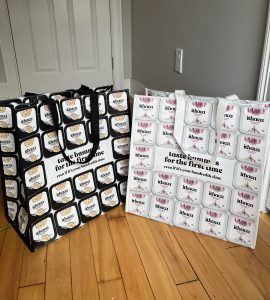 If you’re reading this and still think that using custom reusable bags for your organization’s messaging is a fad, think again. They’re here to stay—evidenced by the number of plastic bag bans and ordinances that have been passed in municipalities all over the United States. Or you may be thinking that custom reusable bags aren’t worth your time because everyone is doing them. Also not true. Although custom reusable bags are an extremely popular promotional product, they have been shown time and time again to be tremendously effective. Continue reading
If you’re reading this and still think that using custom reusable bags for your organization’s messaging is a fad, think again. They’re here to stay—evidenced by the number of plastic bag bans and ordinances that have been passed in municipalities all over the United States. Or you may be thinking that custom reusable bags aren’t worth your time because everyone is doing them. Also not true. Although custom reusable bags are an extremely popular promotional product, they have been shown time and time again to be tremendously effective. Continue reading
Category Archives: Green Issues
Custom Reusable Bags: Here to Stay
Earth Month Reflections: Could You Lead A Plastic-Free Life?
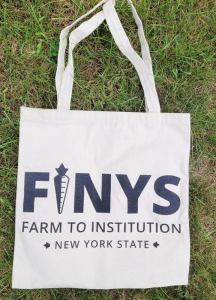 You may have read the title of this blog and immediately thought “no way”. In today’s world, this seems like an almost impossible task, and one that many people may think is not worth it. All you have to do is start thinking about commonly used items to realize that plastic is everywhere. Whether its single-use or reusable, plastic has become a pillar of our society. So how do you even start living a life that’s free of plastic? As we approach Earth Day, let’s talk about ways we can make influential change on an individual level. Continue reading
You may have read the title of this blog and immediately thought “no way”. In today’s world, this seems like an almost impossible task, and one that many people may think is not worth it. All you have to do is start thinking about commonly used items to realize that plastic is everywhere. Whether its single-use or reusable, plastic has become a pillar of our society. So how do you even start living a life that’s free of plastic? As we approach Earth Day, let’s talk about ways we can make influential change on an individual level. Continue reading
What’s the Best Reusable Bag for Sustainability?
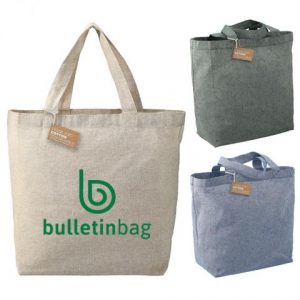 As springtime begins and the weather starts to get warmer, more opportunities for outdoor events and gatherings start unfolding! From school sports games to community outreach, we have a wide range of custom bags to fit your needs. A lot of outdoor events like farmers markets and community garden events seem to have one theme in common: sustainability! You may be wondering: what is the best reusable bag that aligns with my values of sustainability? Look no further! We’ll highlight some of the reusable bag choices if sustainability is important to you. Continue reading
As springtime begins and the weather starts to get warmer, more opportunities for outdoor events and gatherings start unfolding! From school sports games to community outreach, we have a wide range of custom bags to fit your needs. A lot of outdoor events like farmers markets and community garden events seem to have one theme in common: sustainability! You may be wondering: what is the best reusable bag that aligns with my values of sustainability? Look no further! We’ll highlight some of the reusable bag choices if sustainability is important to you. Continue reading
5 Easy Swaps to Live More Sustainably with Custom Reusable Bags
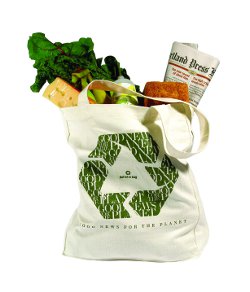 In recent years, we’ve seen the rise of “green” products as more and more people begin to prioritize sustainability in their lives. Reusable items, like custom reusable bags, are a great way to incorporate sustainability into our daily habits. As we know, climate change has only escalated over recent years, so taking action on a personal level is more important than ever! For those wanting to make more sustainable choices in their own life and home, here are some easy swaps you can utilize today! Continue reading
In recent years, we’ve seen the rise of “green” products as more and more people begin to prioritize sustainability in their lives. Reusable items, like custom reusable bags, are a great way to incorporate sustainability into our daily habits. As we know, climate change has only escalated over recent years, so taking action on a personal level is more important than ever! For those wanting to make more sustainable choices in their own life and home, here are some easy swaps you can utilize today! Continue reading
Maine’s Bag Ban: What Is Changing?
 On July 1st, our home state of Maine passed a statewide ban on plastic bags. This bag ban on single use plastic bags is a great step towards being more environmentally friendly. These plastic bags are flimsy and easily destructible. Retailers will now be carrying paper bags, reusable plastic bags, or both. Some single use plastics are exempt from this law, including pharmacy bags and deli bags.
On July 1st, our home state of Maine passed a statewide ban on plastic bags. This bag ban on single use plastic bags is a great step towards being more environmentally friendly. These plastic bags are flimsy and easily destructible. Retailers will now be carrying paper bags, reusable plastic bags, or both. Some single use plastics are exempt from this law, including pharmacy bags and deli bags.
Maine passed legislature to ban single use plastic bags in 2019, but coronavirus put a halt to everyone’s plans. The bag ban got pushed back twice since the pandemic happened. The first delay was because of concerns about spreading germs and the virus. It was then delayed a second time due to disruption in packing supplies brought on by the pandemic. Now if you’re caught at the store without a reusable bag, you’ll have to pay for them. Continue reading
What’s The Price of Single-Use Plastic?
 Single-use plastic is a phrase that you may or may not know. In an age where convenience and accessibility are some of the most important things to add functionality and comfort to our lives, we have to ask ourselves; what is the price? Continue reading
Single-use plastic is a phrase that you may or may not know. In an age where convenience and accessibility are some of the most important things to add functionality and comfort to our lives, we have to ask ourselves; what is the price? Continue reading
Reducing Single Use Plastics with ChicoBag Custom Reusable Bags
Bulletin Bag’s goal of reducing the need for single use plastic bags is an important step in the broader reduction of unnecessary waste. But another important piece is ensuring that our manufacturers care as much as we do. One factory that is making amazing strides in environmental sustainability is ChicoBag. ChicoBag’s president, Andy Keller, has introduced a wide variety of initiatives to help drive forward these goals.
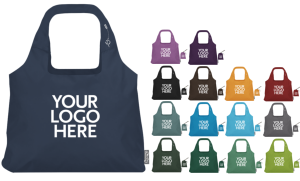
Custom Reusable Bags: An Integral Part of the Supermarket of the Future
![]() Have you heard about the world’s first plastic-free supermarket aisle? It’s a 60 square meter space installed inside of an Ekoplaza store in Amsterdam, and its aim is to change the way you think about plastics consumption (do you see how custom reusable bags are going to come into play here?).
Have you heard about the world’s first plastic-free supermarket aisle? It’s a 60 square meter space installed inside of an Ekoplaza store in Amsterdam, and its aim is to change the way you think about plastics consumption (do you see how custom reusable bags are going to come into play here?).
Instead of plastic fixtures and fittings, the supermarket aisle uses lampshades reclaimed from other stores, metal-and-wood shelves, and cardboard labels. Walk the aisle and you’ll see nearly 700 products-from meat and dairy to beans and veggies-and each one is packaged with non-plastic materials! Can you imagine stocking up on a week’s worth of groceries and yield no plastic waste? Continue reading
Rags2Bags: Making Reusable Bags…and a Difference
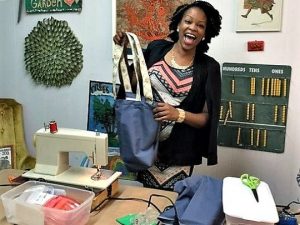
Did you know that this month is celebrated as Plastic Free July? The campaign originated in Australia but is now a worldwide effort to encourage people to stop using disposable plastics. They say that it takes 30 days to make a new habit stick, so the hope is that by the end of the month, participants have made some shifts in thinking.
Frankly, if you’re reading our blogs, you likely already HAVE shifted your thinking, like the dozen women in Florida who came together and created Rags2Bags. The organization has made and distributed more than 2,000 reusable shopping bags throughout their community! Continue reading
Banning the Ban That Encourages Reusable Shopping Bags?
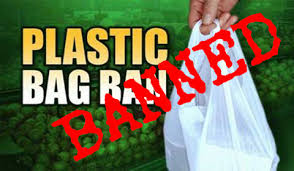 Did you hear the one about the law banning the law banning the bag? Seriously, it’s a thing (in Minnesota, at least). But don’t worry, as some retailers are rewarding those stalwart citizens who bring reusable shopping bags anyway!
Did you hear the one about the law banning the law banning the bag? Seriously, it’s a thing (in Minnesota, at least). But don’t worry, as some retailers are rewarding those stalwart citizens who bring reusable shopping bags anyway!
It all started last year. Minneapolis city council passed an ordinance banning plastic bags, as may other countries, cities, and states worldwide have done over the past several years. That ordinance, which should have started on June 1, 2017, set the wheels in motion for affected retailers. Note the use of the words “should have”. Continue reading



